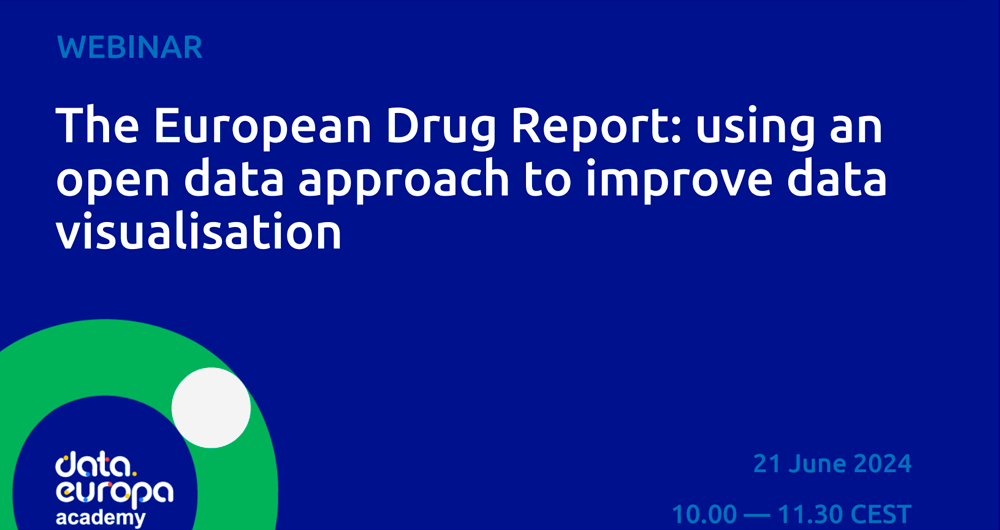30 posts found
Benefits and opportunities of public initiatives for open data visualisation
Imagine you want to know how many terraces there are in your neighbourhood, how the pollen levels in the air you breathe every day are evolving or whether recycling in your city is working well. All this information exists in your municipality's databases, but it sits in spreadsheets and technical d…
How to improve data visualisation: the example of the European drugs report
The European Drug Report provides a current overview of the drug situation in the region, analysing the main trends and emerging threats. It is a valuable publication, with a high number of downloads, which is quoted in many media outlets.
The report is produced annually by the Europe…
Importance of data profiling, types and tools
What is data profiling?
Data profiling is the set of activities and processes aimed at determining the metadata about a particular dataset. This process, considered as an indispensable technique during exploratory data analysis, includes the application of different statistics with the main objectiv…
Data intermediaries and their role in the Data Governance Act
Data is a key part of Europe''s digital economy. This is recognised in the Data Strategy, which aims to create a single market that allows free movement of data in order to foster digital transformation and technological innovation. However, achieving this goal involves overcoming a number of obstac…
The challenge of boosting the Data Economy by deploying the EU's digital diplomacy at the global level
The growing importance of data goes beyond the economic and social spheres at state level to a multinational dimension that raises the challenges, opportunities, threats and uncertainties surrounding the development of the Data Economy to a global scale. In the case of the European Union, the issue…
Challenges and uncertainties for the deployment of the Data Economy in Europe
Four years after the publication of the European Commission's Communication 'A Data Strategy', the European Commission has published a Communication on the European Commission's 'Data Strategy'A Data Strategy' (February 2020) (February 2020) - setting out the broad outlines of the broad outlines of…
Why data spaces?
A data space is the place where value is generated around data through voluntary sharing in an environment of sovereignty, trust and security. The data space enables you to determine who accesses what data and under what conditions, thus facilitating the deployment of different use cases to mee…
European support and coordination actions for the deployment of Data Spaces
Data has become the great transforming power of society. Beyond the more mercantilist view, its capacity to generate knowledge, drive innovation and empower individuals and communities is undeniable. Indeed, it is a resource with which to address, from an innovative perspective, major environmental,…
New Year's resolution: Apply the UNE data specifications in your organisation
As tradition dictates, the end of the year is a good time to reflect on our goals and objectives for the new phase that begins after the chimes. In data, the start of a new year also provides opportunities to chart an interoperable and digital future that will enable the development of a robust data…
Our first digital navigation. Open source alternatives to Google Maps
In the vast technological landscape, few tools have made as deep a mark as Google Maps. Since its inception, this application has become the standard for finding and navigating points of interest on maps. But what happens when we look for options beyond the ubiquitous map application? In this post w…









